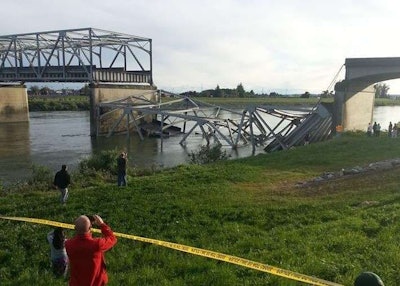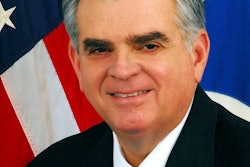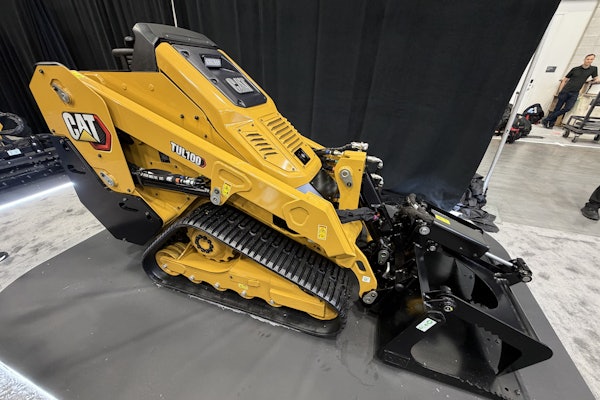 The partial collapse of a bridge over the Skagit River on Interstate 5 in Washington has turned attention to the need for infrastructure funding.
The partial collapse of a bridge over the Skagit River on Interstate 5 in Washington has turned attention to the need for infrastructure funding.The partial collapse of the Interstate 5 bridge over the Skagit River near Seattle has put a big and bright spotlight on the need for more funding for transportation and infrastructure needs in this country. Now attention turns to the lawmakers tasked with figuring it out.
During a meeting in Washington, D.C. of the Transportation Construction Coalition, outgoing Transportation Secretary Ray LaHood said the I-5 bridge is a perfect example of the lack of available funding. “That bridge didn’t just fall down because it was hit by a truck. It also fell down because it’s old and probably needed to be replaced.”
He also stressed the importance of the next transportation bill saying, “We need a five-year bill, a $500 to $600 billion paid-for bill. Even that will just scratch the surface.”
Over at Politico, they’ve put together an overview of the available options lawmakers will be able to choose from in order to raise more money for infrastructure funding including: raising the gas tax; charging drivers based on how much they drive; tapping oil and natural gas drilling royalties and, finally, making more transfers from the general fund.
Of raising the 18.4-cents-per-gallon gas tax, Politico comments that there’s much to like about this option as it’s one of the country’s cheapest to collect and gas stations only need to enter in a few keystrokes to update their systems for the tax. However, with the economy still recovering and gas prices in flux it will be a tough sell to Congress. Plus there is much doubt about its effectiveness over time as fuel efficient vehicles travel longer distances on less and less fuel.
Of charging drivers based on how much they travel using GPS tracking, privacy is obviously the chief concern of most opponents. With the recent news about the NSA having access to phone records, taxpayers aren’t going to be too excited about their comings and goings being tracked as well.
As for tapping oil and natural gas drilling royalties, Politico says the math hasn’t been completely done there just yet, plus if you boost oil drilling oil consumption could increase–something Democrats wouldn’t like very much.
Finally, there’s the option of continuing to transfer money from the general fund to infrastructure needs. However, many in transportation, including LaHood, have said much more money than these general fund transfers can provide is needed. Be sure to read the full overview at Politico by clicking here.











